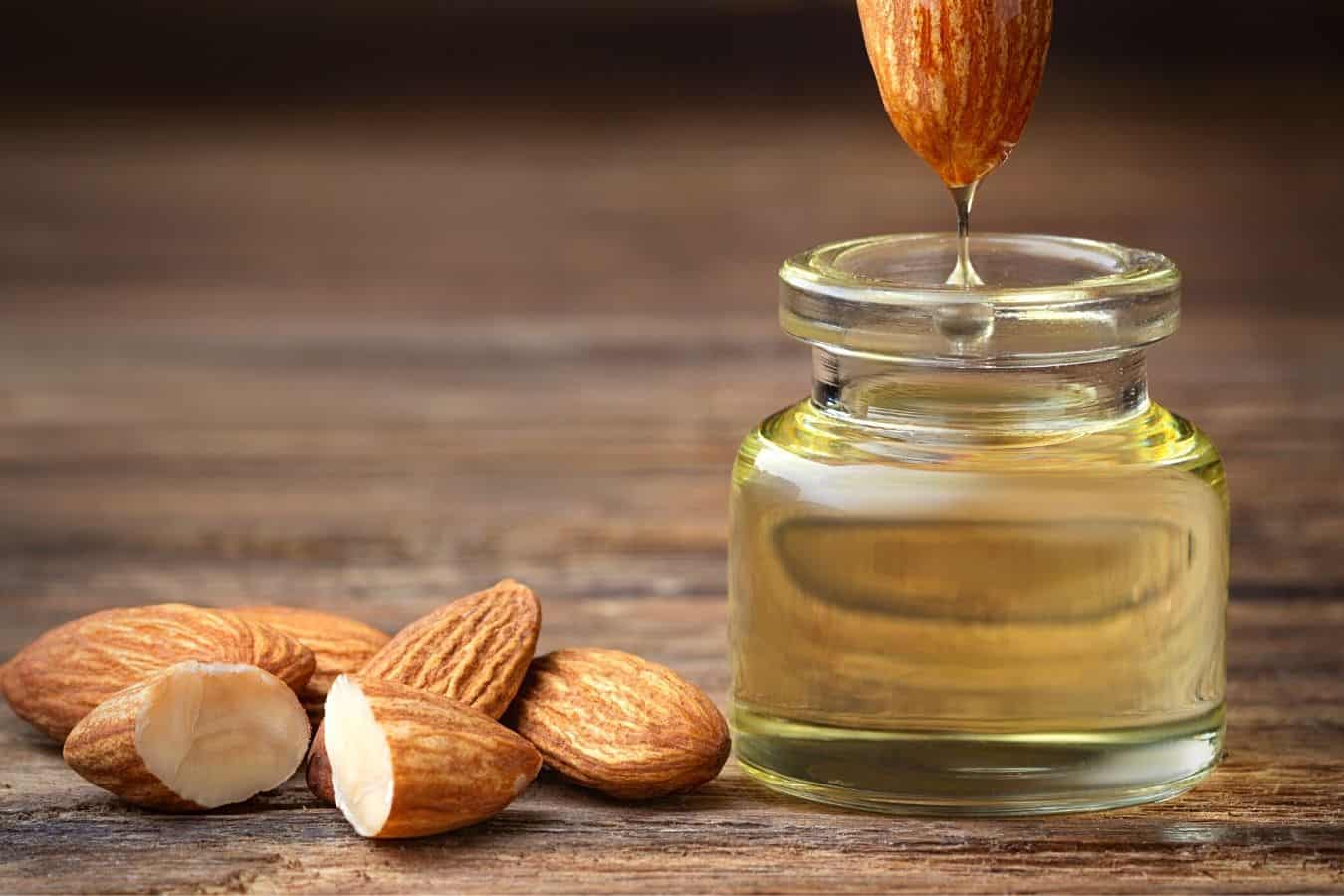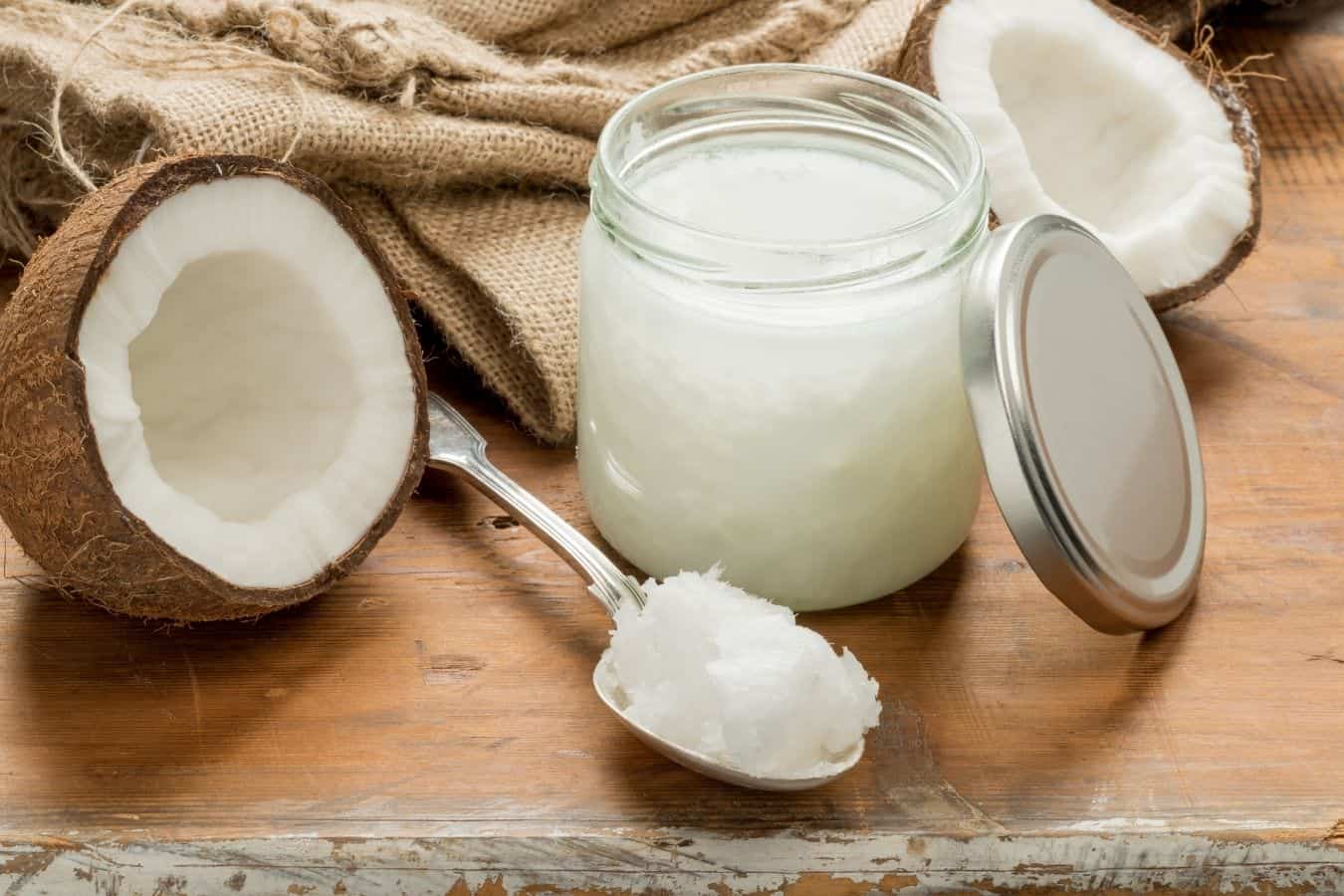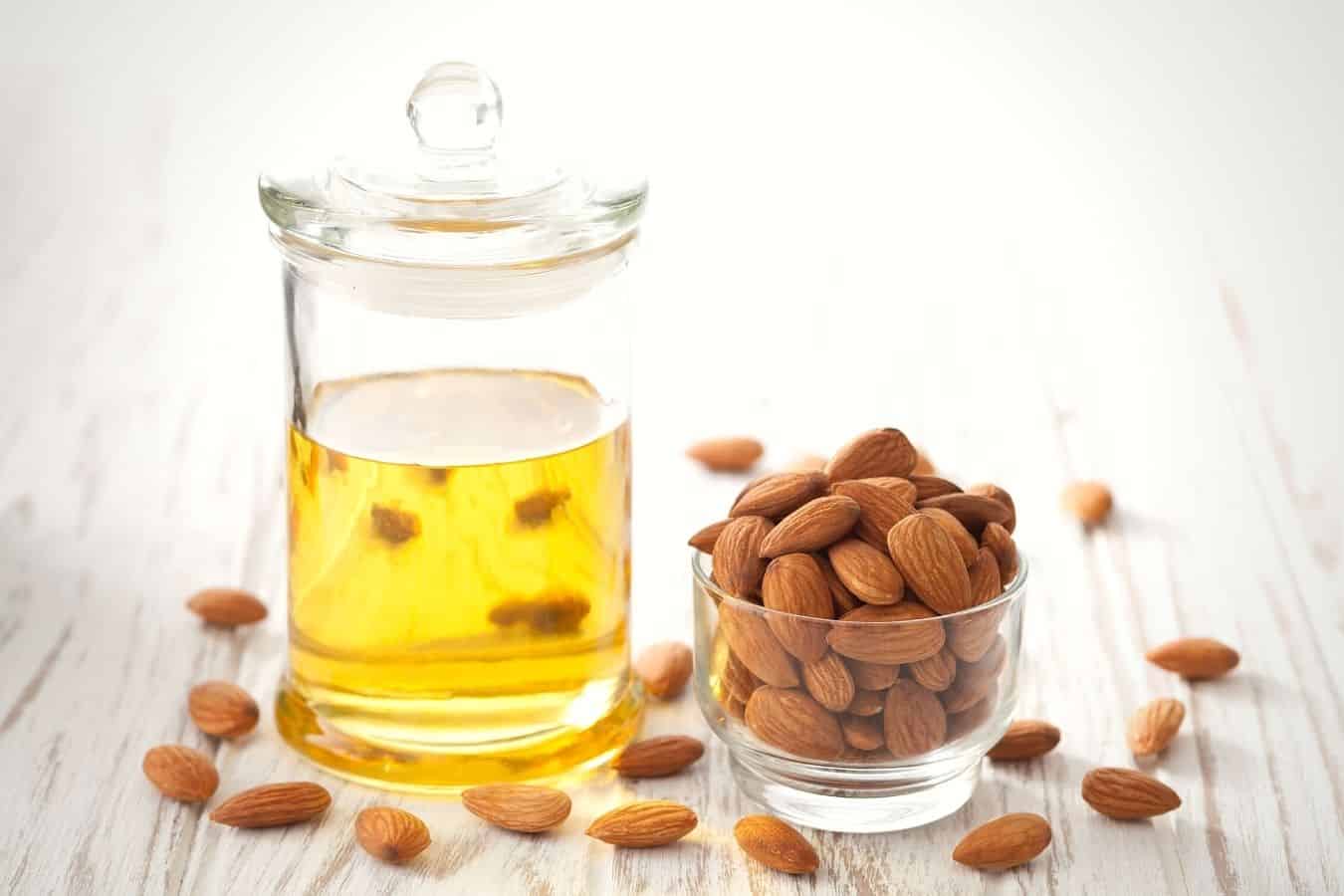In this article, we will answer the question: what are the differences between almond oil and coconut oil for hair? We will also highlight some of their most prominent benefits.

Almond oil and coconut oil are both used in beauty regimes worldwide. Their nutrient profiles mean they have healthful properties for hair, and indeed the whole body.
Almond oil and coconut oil are very comparable in their properties and benefits. They are also both extremely versatile. Both oils promote strong healthy hair growth. Whether you choose one over the other will really depend on the concerns you have for your hair. However, you can’t really go wrong with either of these oils.
What Are the Benefits of Almond Oil For Hair?
Almond oil has a few benefits, all of which result in healthy nourished hair.
Hair Loss Prevention
Almond oil is becoming increasingly known for its ability to prevent hair loss and even stimulate hair growth.
It can nourish and strengthen hair follicles preventing them from breaking and falling out.
Magnesium and calcium present in almond oil promote healthy hair by adding moisture to the follicle from root to tip.
This stimulates the strands of hair so that they become stronger. These minerals also thicken hair which adds strength as it grows.
Almond oil also contains zinc which reduces the thinning of hair and can help avoid conditions such as alopecia.
Combats Dry Scalp
If you are plagued with little flakes of dandruff in your hair and on your shoulders, then almond oil may be the answer to this problem.
The oil contains vitamins that have anti-inflammatory properties. This works to reduce any irritation that causes peeling and it nourishes and conditions the scalp to eliminate flaking.
This results in a softer, healthier flake-free scalp.
Softer Hair
Almond oil is an emollient which means it makes your hair feel smoother. The use of almond oil on your hair gives it a softer texture over time.
Almond oil is great to use on the ends of your hair, especially those strands that have become particularly porous from sun damage and heat styling.
The almond oil will sink in, giving hair the replenishment it needs.
Also Read: [Answered] Is Coconut Oil Good For Low Porosity Hair?
What Are the Benefits of Coconut Oil For Hair?

Not to be outdone by almond oil, coconut oil brings a slew of benefits for your hair.
Reduces Hair Loss
Like almond oil, coconut oil can help reduce the amount of hair you lose every day if hair loss is a concern for you. It also promotes new hair growth.
The saturated fats present in the oil will nourish and condition the scalp helping to promote hair growth and hair thickness.
Moisturizes
The fats found in coconut oil have the ability to penetrate each strand of hair, replenishing lost moisture. The medium-chain fatty acids are particularly good at restoring lost moisture to the hair.
Slows The Hair Aging Process
Coconut oil slows down the graying of hair as it nourishes the hair keeping the moisture content high.
Protects
Coconut oil can give a layer of protection to your hair follicles, protecting them from heat or other damage, meaning that the very roots of your hair will be healthier which in turn promotes healthy hair.
It also makes an excellent protective barrier for hair before dying it and gives much-needed TLC after dying it. This means your color lasts longer and reduces damage to the follicle.
Studies have shown coconut oil can protect hair from sun damage- it has been shown to have sun protection of factor 8.
Adds Strength To Hair
Due to its small molecules and lauric acid content, coconut oil can penetrate the hair shaft. It nourishes the hair with vitamins and minerals, including protein.
This can be extremely beneficial for fine to medium hair which tends to lack natural hair proteins.
Protein is what, ultimately, gives hair its strength and structure so the result is healthier, nourished hair.
Coconut oil is bursting with vitamins and minerals such as vitamin E, vitamin K, zinc, and iron. These nutrients have been shown to increase oxygen flow to hair follicles, promoting hair strength and health.
Tames Hair
Applying a little coconut oil to your locks before you shampoo conditions hair and makes it easier to manage and style.
The healthy fats result in hair that is a little thicker and heavier helping it to retain moisture so you can avoid frizz even if you blow-dry your hair. It can also combat frizz caused by humidity in finer hair.
Almond Oil vs. Coconut Oil for Hair – How Are They Different?

Below we have given you a few easy to digest bullet points highlighting some of the prominent differences between these two nourishing oils.
- Coconut oil is the richest natural source of Medium Chain Fatty Acids (MCFA)
- Almond oil contains Vitamin E and Vitamin D which significantly reduce hair fall
- Coconut oil is better for dry, thick hair to add moisture
- Almond oil is better for heavily processed hair due to the high protein content
- Almond oil is higher in monosaturated fats with a content of 70%
- Coconut oil only has 45% content of monosaturated fats which helps it to penetrate the hair shaft so effectively
- Coconut oil is beneficial for replenishing lost protein
- Almond oil is beneficial for reducing split ends and softening hair
Also Read: Shea Butter Vs. Coconut Oil For Hair: Which Is Better?
Why Use Oils On Hair?
Oils derived from natural sources enrich your hair with goodness and health. This results in healthy, shiny, showstopping hair.
- Oils can be used to help all hair types.
- They nourish the hair and the scalp.
- They stimulate the scalp and restore the natural oils in hair.
- They boost shine.
- Hot oils intensify the treatment, giving even more nourishment to hair.
- Dry hair can benefit from a weekly oil treatment (or as required), especially in the Winter months when the air is dry and draws the moisture from hair.
- ‘Normal’ hair can reap the benefits of the protecting, strengthening and conditioning properties of oils.
- Combination hair tends to have oily roots and dry ends as a result of chemical or heat damage. This affects the production of sebum and its ability to move down the hair strand. An oil treatment can give sebum the helping hand it needs to reach the roots.
How to Use Almond and Coconut Oil For Hair
There are a few ways you can use these oils to show your hair some love.
Hair Mask
You will need:
- Coconut oil or almond oil
- Small pot of boiled water
- Small bowl or jar
- Plastic cap
- Shampoo and conditioner
Instructions:
- Put the oil into the glass jar or bowl.
- Add the boiled water the bowl/jar.
- Add the oil to the bowl/jar and let this sit for a few minutes.
- As the oil warms, create six sections in your hair. You can make more sections, depending on your hair’s length and texture.
- Apply the oil to your hair and scalp, and really work it in to the ends.
- Pop on the plastic cap and leave it to work for about least 30 minutes.
- Rinse your hair then wash with your preferred shampoo and conditioner.
- Style as normal.
Conditioner
You will need:
- Shampoo
- Comb
- Almond or coconut oil
Instructions:
- Shampoo hair as normal.
- Apply the oil to your hair then comb through from the roots to the ends.
- Rinse and style as normal.
Scalp Treatment
You will need:
- Coconut oil or almond oil
- Plastic cap
Instructions:
- Before bed, massage a small amount of your chosen oil into the scalp.
- Pop the cap on and leave it overnight.
- Wash it out with shampoo the next morning.
Protecting De-tangler
You will need:
- Shampoo and conditioner
- Coconut oil or almond oil
- Hairbrush
Instructions:
- Shampoo and condition hair as normal.
- Take a little almond oil or coconut oil and work it through your hair with your fingers which will protect it while being brushed.
- Brush hair.
The above techniques can be used as often as required to leave you with nourished hair. The amount of oil may vary depending on the length of your hair.
Those of you with short or fine hair may need as little as one teaspoon, whereas if your hair is longer or thicker you may need to use up to two tablespoons to see the benefits.
As a general rule of thumb, you should start with less and work your way up to more if your hair requires it.
Whichever of these oils you decide to use, try to use the most natural versions of them.
You really can’t go wrong with either of them, but you might find that one just hits the mark for you more than the other. Happy experimenting!
Disclaimer: This site is not intended to provide professional or medical advice. All of the content on LovedByCurls.com is for informational purposes only. All advice should be followed at your own discretion. Ingredients may change at any time so always check the product label before using. Check our full disclaimer policy here.
